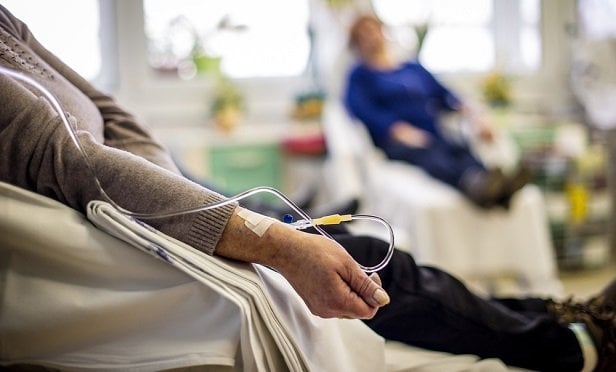 The number of people diagnosed with cancer increases with age, and that an aging population and increased number of cancer survivors will contribute to the increased cost. (Photo: Shutterstock)
The number of people diagnosed with cancer increases with age, and that an aging population and increased number of cancer survivors will contribute to the increased cost. (Photo: Shutterstock)
Costs associated with cancer treatment are expected to exceed $245 billion by 2030, or nearly a 34% increase from 2015 billing, according to a new study.
The study published in the medical journal Cancer Epidemiology, Biomarkers & Prevention found the total costs varied by the type or location of the cancer, and the stage in which it was caught. Earlier treatment means lower costs, while end-of-life treatment often has the biggest cost.
Recommended For You
Complete your profile to continue reading and get FREE access to BenefitsPRO, part of your ALM digital membership.
Your access to unlimited BenefitsPRO content isn’t changing.
Once you are an ALM digital member, you’ll receive:
- Breaking benefits news and analysis, on-site and via our newsletters and custom alerts
- Educational webcasts, white papers, and ebooks from industry thought leaders
- Critical converage of the property casualty insurance and financial advisory markets on our other ALM sites, PropertyCasualty360 and ThinkAdvisor
Already have an account? Sign In Now
© 2025 ALM Global, LLC, All Rights Reserved. Request academic re-use from www.copyright.com. All other uses, submit a request to [email protected]. For more information visit Asset & Logo Licensing.








